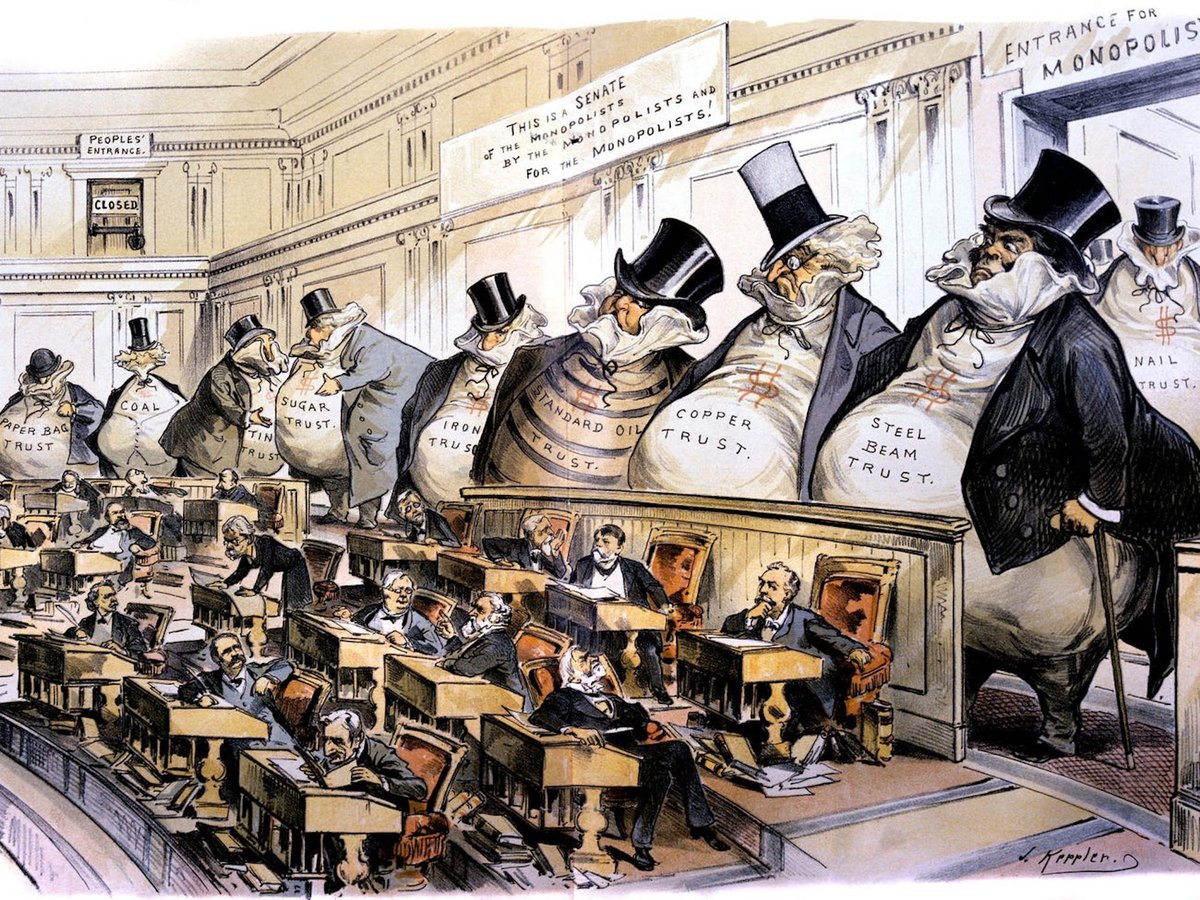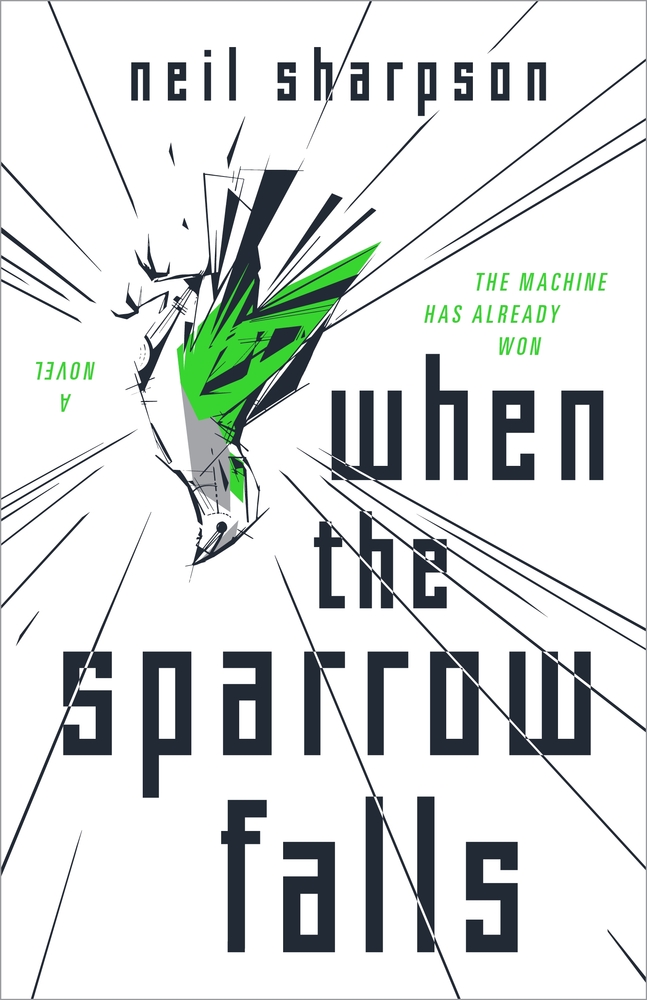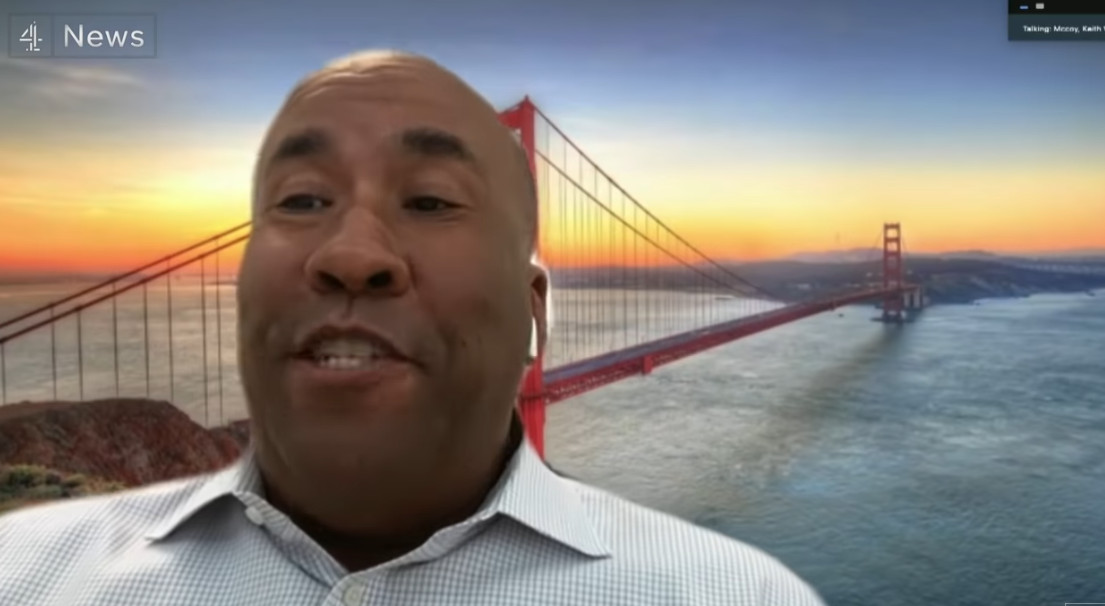
"Corruption" conjures images of bags of cash changing hands in deserted parking garages, but I'd like to propose a simple and concrete definition that goes beyond that: "Corruption" is when something bad happens because its harms are diffused and its gains are concentrated.
1/
1/

If you'd like an unrolled version of this thread to read or share, here's a link to it on pluralistic.net, my surveillance-free, ad-free, tracker-free blog:
pluralistic.net/2021/06/30/bas…
2/
pluralistic.net/2021/06/30/bas…
2/
Here's what I mean. West Virginia is known as coal country, but coal is actually a small, dwindling industry in WV; WV's biggest industry is chemical processing, dominated by Dow - chem processing, like many industries, is heavily concentrated into a few global monopolies.
3/
3/
WV has a water crisis, with frequent "boil water" advisories. Its origins are in the chemical industry - specifically, in a regulatory proceeding where state regulators sought comment on whether to relax the EPA's national guidelines on chemical runoff into drinking water.
4/
4/
Dow, acting through the manufacturers' association it controls, argued the people of WV could absorb more poison than the national average because they were much fatter than the median American, and when they drank, it was mostly beer, not water.
washingtonmonthly.com/2019/03/14/the…
5/
washingtonmonthly.com/2019/03/14/the…
5/
No, really.
Here's the thing. I'm not qualified to set the safe levels of different kinds of runoff in water-tables. It's probably not zero (at least, not for most chemicals), but it's also not "anything goes."
6/
Here's the thing. I'm not qualified to set the safe levels of different kinds of runoff in water-tables. It's probably not zero (at least, not for most chemicals), but it's also not "anything goes."
6/
It's a question that requires subtle, interdisciplinary expertise: chemistry, health, environmental science. It's an area where people of good faith can disagree.
These thorny, high-stakes technical questions that cross disciplines are the norm, not the exception.
7/
These thorny, high-stakes technical questions that cross disciplines are the norm, not the exception.
7/
Even if you have the technical knowhow to evaluate whether wearing masks fights covid, that doesn't answer questions about vaccine safety, or whether zoom-school will turn your kid into an ignoramus.
8/
8/
Answer those questions and you're left with still more: should you get in one of Southwest's recertified Boeing 737-Max airplanes? Is the code specifying the reinforced steel joist that holds up your roof adequate, or is your building gonna collapse?
9/
9/
Should you eat carbs? Will your 401k preserve you through a dignified retirement? Answering all of these questions definitively for yourself requires earning 50+ PhDs, but also, people who have those PhDs don't all agree with one another.
10/
10/
In a technologically complex world, there will always be official advice whose technical arguments we can't understand. Our only reassurance is the process by which that advice is arrived at.
11/
11/
We may not understand the arguments, but we can recognize an open, independent process refereed by neutral regulators who show their work and recuse themselves if they have a conflict of interest.
12/
12/
We don't always understand what goes on inside the box, but we can tell whether the box itself is sound. We can tell judges are financially interested in outcomes, whether they publish their deliberations, whether they revisit their conclusions in light of new evidence.
13/
13/
That's all we've got, and it depends on a balance of powers that arises from a pluralistic, diffused set of industrial interests.
When an industry says with one voice that West Virginians are so fat that we can poison them without injury, it carries a lot of weight.
14/
When an industry says with one voice that West Virginians are so fat that we can poison them without injury, it carries a lot of weight.
14/
(so to speak)
It's a stupid argument. It's a wicked argument. It's a lethal argument. It's the kind of argument that might get you laughed out of the room if it is filled with hundreds of squabbling chemical companies looking to dunk on one another.
15/
It's a stupid argument. It's a wicked argument. It's a lethal argument. It's the kind of argument that might get you laughed out of the room if it is filled with hundreds of squabbling chemical companies looking to dunk on one another.
15/
That's the thing about conspiracies (and Dow was, in fact, engaged in a conspiracy to poison West Virginians to enrich its shareholders) - they require a lot of discipline, with all the conspirators remaining loyal to the conspiracy and no one breaking ranks.
16/
16/
The bigger a group is, the more it struggles to keep a united front. That's why there's so much billionaire class solidarity. Sure, it's hard to maintain unity among a clutch of grandiose maniacs, but it's MUCH harder to maintain unity among billions of their victims.
17/
17/
Monopolization is corruption's handmaiden - not just because it lets Dow hire fancy lawyers and "experts" to dress up "fat people are immune to poison" as sound policy, but because the industry can sing that awfful song with one voice.
18/
18/
Dow spent hundreds of thousands of dollars to win a policy that will save it millions - and cost the people of WV hundreds of millions or even billions in health costs, lost productivity, and, of course, the intergenerational trauma of ruined and lost human lives.
19/
19/
The reason millions in gains can trump billions in losses is that that the millions are reaped by just a few firms, who can wield them with precision to secure the continued right to impose costs on the rest of us, while the losses are spread out across the whole state.
20/
20/
For Dow to corrupt West Virginia's legislature, it need only tithe a small percentage of its winnings to political causes and dark money orgs.
21/
21/
For West Virginians to fight corruption in the cash-money world of political influence campaigns, they have to overcome their collective action problem AND outspend Dow - all while bearing the human and monetary costs of Dow's corruption.
22/
22/
America is a land of manifest, obvious dysfunctions, and close examination reveals their common root in corruption.
Take the health-care system: Americans pay more for worse outcomes than anyone else in the rich world.
23/
Take the health-care system: Americans pay more for worse outcomes than anyone else in the rich world.
23/
Their healthcare is rationed by faceless, cruel bureaucracies. They ration their medicine or skip necessary procedures. Patients hate this - but so do doctors and nurses, who have to hire armies of bureaucrats to fight with insurers.
24/
24/
Everyone hates this system. Everyone knows it's rotten. Everyone - except for a handful of pharma, hospital and insurance monopolists, and the propagandists they pay to busily race through the crowd, busily swapping hats and shouting, "SOCIALISM! BOO! SOCIALISM!"
25/
25/
But while the US healthcare system is terrible at providing healthcare, it's VERY good at jackpotting for monopolists. They reap billions while costing the public trillions, and they hand around millions to keep that situation intact.
26/
26/
We can see that in action RIGHT NOW. @ninaturner is running to take over a Congressional seat in northeastern Ohio vacated by @mlfudge when she joined Biden's cabinet.
dailyposter.com/dems-launch-pr…
27/
dailyposter.com/dems-launch-pr…
27/
For 30 years, every Congressional rep for Ohio's 11th supported Medicare for All - a commensense measure to end the long waits, price gouging and cruel bureaucratic rationing of for-profit care. Unsurprisingly, Turner also supports #M4A.
28/
https://twitter.com/ninaturner/status/1404793650895331337?s=20
28/
In response, a group of corporate, establishment Congressional Dems have launched an all-out attack on Turner's candidacy, joining forces with health-care lobbyists to raise vast corporate fortunes to support her primary challenger, Shontel Brown.
29/
29/
The seven Dem lawmakers attacking Turner have collectively taken in $5m from pharma and health-care monopolists. @WhipClyburn alone has pocketed $1m from pharma. He's leading the charge against Turner.
30/
https://twitter.com/TaylorPopielarz/status/1405121330433957888
30/
Before Clyburn accepted $1m worth of pharma money, he co-sponsored Medicare For All legislation. Now he's its most bitter opponent, insisting that it's political poison (a majority of his constituents support M4A).
nbcnews.com/politics/2020-…
31/
nbcnews.com/politics/2020-…
31/
One MILLION people in Ohio lost their jobs - and health care - during the pandemic. The system is murdering and maiming people. It's a wasteful boondoggle that's bad for everyone except a tiny minority of shareholders and the corrupt officials who accept their blood-money.
32/
32/
It's not just healthcare. Think of @exxonmobil's crime against humanity and Earth: the 40-year coverup and disinformation campaign to delay action on the climate emergency. Exxon spent millions, made tens of billions, and cost us all trillions.
theguardian.com/environment/20…
33/
theguardian.com/environment/20…
33/
The megadroughts, once-in-millennium heatwaves, raging wildfires, annual floods-of-the-century and zoonitic plagues Exxon bought with their millions were objectively a very bad deal - but their concentrated gains beat our much larger diffused losses (so far). #ExxonKnew.
34/
34/
But corruption creates policy debt, and the interest on that debt compounds - in a degraded environment, worsening health, precarious work, and a collapse in trust in institutions. The corrupt have a structural advantage, but it's not a sure thing.
35/
35/
Take Ohio (again). The GOP-dominated Senate passed legislation to ban Ohio cities from offering municipal broadband. Now, municipal broadband is the best internet in America: cheaper, faster and more reliable than anything the telecoms monopolists offer.
36/
36/
There are ~900 (mostly Republican) towns and counties where people get their internet from their local government:
muninetworks.org/communitymap
And they fucking LOVE it, just as much as their Comcast-burdened peers elsewhere hate their service:
web.archive.org/web/2018080822…
37/
muninetworks.org/communitymap
And they fucking LOVE it, just as much as their Comcast-burdened peers elsewhere hate their service:
web.archive.org/web/2018080822…
37/
Muni networks are better at everything to do with the internet: connection speeds, price, and customer service. There's only one area in which they underperform relative to telecoms monopolies: generating profits for shareholders by overcharging and underinvesting.
38/
38/
There's only a tiny minority of people who'd trade GOOD internet service for PROFITABLE internet service (namely, the people receiving the profits). But the pro-monopolists have concentrated gains, while the public experiences diffused losses.
39/
39/
That's why the Ohio Senate passed its budget bill banning municipal networks. But when the budget was reconciled in the Ohio House, the measure was killed, thanks to an all-out uprising led by the people of Fairlawn, who stepped up to defend @FairlawnGig, their muni ISP.
40/
40/
The victory for muni broadband is a triumph of evidence over corruption - proof that the diffused nature of corruption losses can be overcome. It's cause for hope, especially in light of this week's collapse of the antitrust case against Facebook.
wired.com/story/ftc-anti…
41/
wired.com/story/ftc-anti…
41/
Facebook escaped justice by citing the theories of Robert Bork, Nixon's chief criminal co-conspirator and Ronald Reagan's court sorcerer. Bork insisted that anittrust law had but one purpose: to keep prices down.
pluralistic.net/2021/06/28/dub…
42/
pluralistic.net/2021/06/28/dub…
42/
Any other consideration, ESPECIALLY political corruption arising from market concentration, was out of scope.
The court agreed. No surprise; 40% of the US Federal judiciary has attended a lavish "Manne Seminar," junkets where they are indoctrinated into Borkism.
43/
The court agreed. No surprise; 40% of the US Federal judiciary has attended a lavish "Manne Seminar," junkets where they are indoctrinated into Borkism.
43/
But the absurdity of ruling that Facebook isn't a fit subject for anti-monopoly law is the beginning of the end for Borkism, prompting bipartisan calls - led by @senwarren - to explicitly redesign American antitrust.
msn.com/en-us/money/ot…
44/
msn.com/en-us/money/ot…
44/
Corruption has many costs: monetary, human, environmental. But every bit as important is the cost to institutional credibility. Remember, none of us are capable of understanding the technical nuances of the dozens of life-or-death decisions we face daily.
45/
45/
If we can't trust our institutions - if we don't believe that regulators are neutral, good-faith experts in ardent pursuit of the truth and the public good - then our very idea of shared reality collapses, as @Snowden has written:
edwardsnowden.substack.com/p/conspiracy-p…
46/
edwardsnowden.substack.com/p/conspiracy-p…
46/
It's hard to overstate the sheer, reeling epistemological terror of institutional collapse. When the EPA allows the chemical industry to poison America, how can you know whether the products in the store can be trusted not to kill your family?
theintercept.com/2021/06/30/epa…
47/
theintercept.com/2021/06/30/epa…
47/
Remember, the #FlintWaterCrisis came about as the result of corruption: the promises of "experts" that taking shortcuts to save money would come out all right, despite the copious evidence to the contrary.
en.wikipedia.org/wiki/Flint_Wat…
48/
en.wikipedia.org/wiki/Flint_Wat…
48/
What parent of a permanently damaged child, poisoned by lead deliberately introduced to save pittances for a tiny group of people, could ever trust ANY "expert" process again?
49/
49/
Michigan Republicans saved millions at the expense of billions, but the gains were concentrated among the wealthy white taxpayers of the state who enjoyed cuts to the top marginal rate, and the costs were born by the Black families of Flint. That's corruption.
eof/
eof/
• • •
Missing some Tweet in this thread? You can try to
force a refresh








